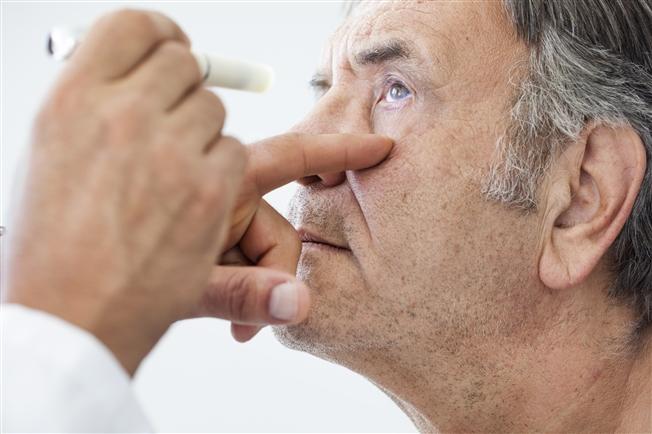BOD-ities: What’s causing those floating eye spots?

You’ve probably heard of eye floaters before, and maybe you’re reading this because you’ve even seen some in your own eye. Eye floaters is a term that refers to the shapes and spots that you might see, yes, “floating” through your vision every now and then.
Floaters can appear in many forms: some show up as dark specks or spots while others look like milky, translucent cobwebs or strings. In most cases, these appear and disappear quickly. By the time you try to refocus your sight, these floaters have moved out of your field of vision.
There are many reasons why you might see floating spots in your eye. Sometimes it can be a symptom of aging (floaters are more common in people age 50 and over) and other times it may be a result of nearsightedness, eye surgeries, eye trauma or medications.
In most cases, however, floaters occur as a result of damage to the eye or changes to the vitreous, a gel-like substance that covers our eyes and helps them maintain their shape. Think of the vitreous as air inside of a basketball. Eventually, the vitreous pulls away from its attachment to the back of the eye and casts a shadow onto the retina. As a result, patients often describe seeing ‘floaters’
Are floaters in the eye dangerous?
In most cases, no. Less than 10 percent of patients with floating spots in the eye have a retinal tear. Floaters are common and become even more common as we age. But if you start to notice that…
- Eye floaters are occurring more frequently
- You have more eye floaters than usual
- Flashes of light or darkness are accompanying your eye floaters
…make an appointment with an ophthalmologist to discuss these changes. While most cases of floating eye spots are not cause for concern and do not require treatment, your ophthalmologist may recommend that you undergo laser treatment or surgery for eye floaters.
While there’s not much you can do to change prevent floating spots in your eye, it is important to live a healthy lifestyle and manage your risk for chronic health issues like diabetes, inflammation and high blood pressure. Issues like these can affect your overall health and can cause more severe ocular health issues like diabetic or hypertensive retinopathy. Your primary care provider can help you establish and follow a healthy lifestyle.
Have questions or concerns about your vision? Our ophthalmology team can help. The ophthalmologists at Main Line Health, with offices throughout the Philadelphia suburbs, offer a full range of diagnostic and treatment services for diseases of the eye. Ophthalmologists are specialists that offer both medical and surgical treatments for eye conditions.
Main Line Health serves patients at hospitals and health centers throughout the western suburbs of Philadelphia. To schedule an appointment with a specialist at Main Line Health, call 1.866.CALL.MLH (225.5654).